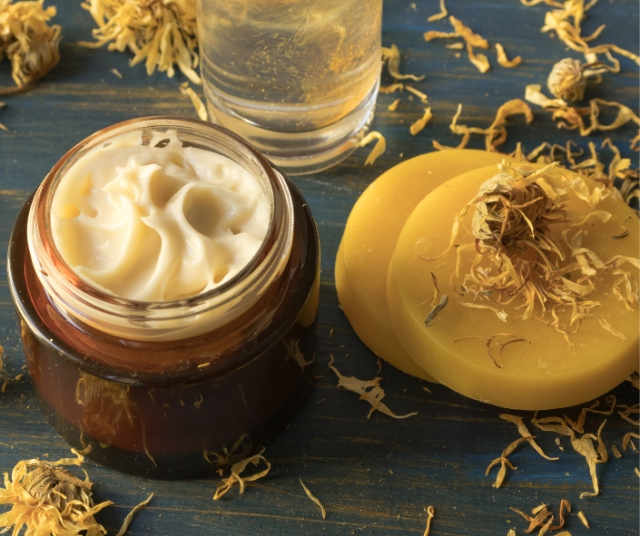In the continued search for effective weight loss methods, gels and creams have gained popularity as a convenient and potentially effective option. These topical solutions promise to help reduce localized fat, improve the appearance of the skin, and facilitate the weight loss process. However, how effective are these products really? Join us to explore weight loss gels and creams in detail, analyzing their ingredients, mechanisms of action, effectiveness, safety and important considerations.
What are weight loss gels and creams?
Weight loss gels and creams are topical products designed to be applied to the skin with the goal of reducing localized fat, improving the appearance of the skin, and promoting weight loss. These products typically contain a variety of active ingredients that are believed to have fat-burning, cellulite-reducing, or toning properties. Some of the common ingredients in these creams include caffeine, retinol, plant extracts, seaweed, essential oils, and other compounds.
Mechanisms of action of weight loss gels and creams.
Weight loss gels and creams work through several mechanisms that are believed to promote fat loss and improved skin appearance. Some of the possible mechanisms of action include:
Metabolism stimulation.
Some active ingredients in weight loss gels and creams, such as caffeine, are thought to boost metabolism and increase fat burning. Caffeine acts as a stimulant that can increase metabolic activity and improve fat oxidation.
Improved blood circulation.
Some ingredients, such as certain plant extracts and essential oils, are believed to have properties that improve blood circulation and microcirculation in the skin. Better circulation can help reduce fluid retention, improve lymphatic drainage, and promote the elimination of toxins and metabolic waste.
Cellulite reduction.
Many weight loss gels and creams are specifically aimed at reducing the appearance of cellulite. These products often contain ingredients such as retinol, which are believed to improve skin elasticity, stimulate collagen production, and reduce the appearance of dimples associated with cellulite.
Hydration and toning of the skin.
Some weight loss creams are formulated to hydrate and tone the skin, which can improve its appearance and texture. These products often contain moisturizing and nourishing ingredients, such as hyaluronic acid, vitamins, and natural oils, which can help smooth, firm, and rejuvenate skin.
Are gels and creams effective for weight loss?
While weight loss gels and creams may offer temporary cosmetic benefits, such as smoother, more toned skin, the evidence on their effectiveness for actual weight loss is limited and controversial. Several studies have examined the effectiveness of these products, but the results have been inconsistent and in many cases inconclusive.
Limited scientific evidence.
Most studies investigating the effects of weight loss gels and creams have focused on their cosmetic effects, such as reducing the appearance of cellulite and improving skin texture, rather than their ability to reduce body fat or promote weight loss. Additionally, many of these studies have been funded by industry and may be biased in their design and results.
Variable results.
The results of studies on the effectiveness of weight loss gels and creams have been variable, with some studies reporting modest benefits in reducing waist circumference or improving the appearance of cellulite, while others They found no significant differences compared to placebos.
Importance of diet and exercise.
It is important to keep in mind that no weight loss gel or cream can replace a healthy and balanced diet, as well as a regular physical exercise program. Effective weight loss requires a comprehensive approach that includes healthy eating habits, regular physical activity, and a healthy, active lifestyle.
Important considerations and precautions.
Before using weight loss gels and creams, it is important to keep in mind several important considerations and precautions:
Consult with a health professional.
Before starting any weight loss program or using weight loss products, it is advisable to speak with a health professional, such as a doctor or registered dietitian. They can provide you with personalized guidance and help you determine if these products are right for you.
Check the ingredients.
Before purchasing weight loss gels and creams, carefully review the ingredients list and check to see if there are any ingredients that you may be sensitive or allergic to. Avoid products that contain questionable or potentially dangerous ingredients.
Keep realistic expectations.
It is important to have realistic expectations about the results you can expect to get from weight loss gels and creams. While these products may provide temporary cosmetic benefits, they are unlikely to produce significant weight loss on their own.
Combine with diet and exercise.
For best results, combine the use of weight loss gels and creams with a healthy, balanced diet, as well as a regular physical exercise program. These are the fundamental pillars of any effective and sustainable weight loss program.
Weight loss gels and creams are topical products designed to reduce localized fat in certain spots, improve the appearance of the skin and promote weight loss. While these products may offer temporary cosmetic benefits, such as smoother, more toned skin, the evidence on their effectiveness for actual weight loss is limited and controversial. Before using weight loss gels and creams, it is important to consult with a health professional and maintain realistic expectations about the results you can expect to achieve. Remember that no topical product can replace a healthy and balanced diet, as well as a regular physical exercise program, when it comes to losing weight effectively and sustainably.






